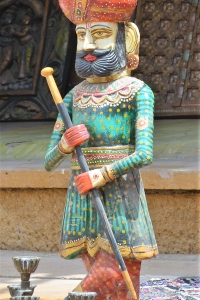
The following is a true story. Names of people have been changed. I am not advocating astrology. Make what you like of the story.
Maya had beauty in abundance, loving parents, a well-paid job in a top Delhi hospital and several young men who fancied her. She knew it was one thing to like boys, but another to marry one. Marriage came with responsibilities and stability.
‘Love will happen, by and by,’ her mother was always so practical.
Maya half agreed with her and readily said yes to the proposal that came through the marriage broker. After all, the boy was a high-flier in the United Nations. There were rumours that he would be India’s candidate for the next Secretary General. His family had old money, just like hers. To top it all, he looked gorgeous in the photograph. Noble forehead, chiseled features, dreamy eyes. She couldn’t wait to see him and feel his moustache against her lips. She always wanted to live in New York, and now the opportunity had just fallen in her lap. ‘Must be my good karma,’ she thought aloud as she stretched in bed.
There was a slight problem with the horoscope. It was not a perfect match, the family astrologer had said. The boy’s horoscope had a slight chovva dosham in the eighth house.
‘Stuff and nonsense. We live in the 21st century,’ her father dismissed the astrologer’s concerns.
Maya remembered her late grandmother talking about the effect of the twelve houses of planet Mars on certain birth signs. Mere superstitions, Maya agreed with her father. After all, she was an educated woman, a doctor. But what if…she didn’t let the thought complete.
Enough of this nonsense, Maya chided herself. There were a million things to do.
‘Maya, the driver is here. We need to buy the wedding saree and jewellery today,’ her mother was calling out to her.
‘Have you told your friends? What about the mehndi woman? Is she available? Oh God! How are we going to manage all this Maya? December is too early,’ she was beginning to panic.
The prospective groom was struggling to take leave. There was a window in December when he could get three days off, he told her on the phone. Otherwise they may have to wait ten to twelve months. Maya shuddered at the very thought of waiting another year.
‘It has to be done this month,’ her father was determined.
Her father was a retired civil servant and she trusted him completely. Once he made up his mind, no one could distract him. The wedding was fixed for 26 December, an auspicious day in the Hindu calendar. There were only two weeks to the wedding. But Maya’s father thrived under pressure. The temple was informed and the newly ordained priest was assigned to conduct the wedding.
Uncles, aunts, cousins, friends, and children of all sizes arrived. The collective expectation of a grand wedding assumed a life of its own and energised them. The house resembled a railway platform at night, with people sleeping in every available space.
When the phone rang in the middle of the night, Maya woke up with a start. Nakul, her fiancé, was on the line. She knew that a midnight phone call always brought news, mostly bad.
‘I’ll see what I can do,’ Maya’s father said as he put down the phone.
People were waking up and one by one; they came to the living room, silently staring at him for an explanation. He sat down heavily on the sofa and beckoned Maya to his side.
‘As you all know, the UN is heavily involved in the Balkans. Nakul has been asked to lead a special deputation to Sarajevo.’
‘What’s that got to do with the wedding?’ Maya’s mother was on the verge of tears.
They all knew the answer, but were waiting for her father to confirm.
‘He has to leave for Belgrade on 26 December. He says, if he turns down this opportunity, the Indian Government may not put up his name for the big job. Poor chap; he is in a real dilemma.’
Everyone was speaking in shrill tones. Nothing made any sense. Maya felt despondent and sat with her head down. She felt alone. It was her father who cheered her up with his quick thinking.
‘We will arrange the wedding in New York,’ he announced triumphantly and looked around in defiance daring anyone to challenge his idea.
He called Nakul. She didn’t hear a word of the conversation. In her mind, she was already on the plane to New York. When her father finally put down the phone, he was smiling.
‘Nakul thinks it is a fantastic idea. As we speak, he is asking his immediate family to fly to New York.’ Her father was back in his manager’s role and was already giving instructions.
‘Nothing has changed. Instead of Delhi, it will be New York,’ he announced. His voice, however, had a slight tremor, a tinge of anxiety.
On 15 December, Maya and a small group of family and friends were queuing at immigration in New York’s JFK International Airport. Maya was jet lagged and weak with worry. She was instructed by the travel agents in India to tell the immigration officials she was a tourist, travelling alone and returning home within a week. She had no confidence in her ability to be disingenuous and prayed silently for a smooth passage through immigration.
‘How you doing today, ma’am?’ the immigration officer was friendly.
His large and overbearing frame made the chair he was sitting on appear like a child’s high chair. His podgy fingers tapped her completed immigration form and Maya noticed he was tapping the box where she had written ‘Tourism’ against purpose of visit.
‘So, this is your first time to New York, eh? Travelling alone?’
‘Uh uh,’ Maya could hardly speak.
‘I am sorry, I didn’t hear you ma’am,’ he was speaking quite loudly and Maya thought people were looking at her.
She was beginning to feel hot and her knees were shaking.
‘Odd time to visit New York, don’t you think? Uh? In winter?’ he was still tapping the purpose of visit box.
‘Ma’am, why would a medical doctor, take leave from her hospital and visit New York on her own? Do you have a friend maybe, in New York?’
‘No, I mean, yes…no…no,’ her eyes filled up.
‘Come this way please,’ he was abrupt. Getting up from his seat, he pulled down the shutter on his counter and led her to a small room. His tight fitting uniform struggled to contain his bulky frame and made him appear larger than he was. Maya could see the long queues at the immigration through the thick sheet glass wall. The furniture was all white and the room smelled of anaesthetic. It reminded her of a morgue.
‘Ma’am, the United States Government requires you to tell the truth to its officers. It is a Federal offence to lie,’ he dwelt on 'lie' and pronounced it 'Laaayyyee' making it sound like a heinous crime.
‘Ma’am, I ask you again. WHAT IS THE REAL PURPOSE OF YOUR VISIT?’ his deep red face was uncomfortably close to hers and she could smell his breakfast. Maya slumped into a chair.
‘I have come to get married. My fiancé lives in New York,’ she wept.
Within 6 hours Maya was back on an Air India flight to Delhi. The rest of the family returned two days later. Her mother wept as if someone had died. The phone rang non-stop. Maya didn’t know what to make of it all and felt lost. Luckily she had her hospital work to keep her busy.
‘I am planning something, Maya. Don’t you worry,’ Nakul reassured her on the phone, ‘we will get married in December. This is a promise.’
What Nakul did next took everyone by surprise. He told the UN that he was not willing to go to Sarajevo and flew to Delhi on three weeks’ leave. It was decided they would be married on 26 December as originally planned. The temple was available and the priest was only too happy to conduct the wedding.
No one could believe that the priest had never conducted a wedding before. He was confident and with a flourish, quoted from the holy Bhagwad Geeta.
‘Na jaayate mriyate vaa kadaachin…’ he stopped abruptly when Maya’s great uncle, a retired professor of Sanskrit, elbowed him violently, but discreetly. He looked agitated and whispered something in the priest’s ears. The priest looked around peevishly and started again. No one understood any of the mantras and neither did anyone pay any attention. They were enthralled by the drums and shehnai, which reached a crescendo as Nakul fastened the gold thali around Maya’s neck.
The wedding feast was a typical Kerala affair. The food was served on banana leaves. As Maya and Nakul sat down to eat, the man who laid the leaves on their table, got it wrong. He had probably grown up in Delhi and wasn’t aware of the Kerala traditions. Even she knew that the narrow end of the leaf should have pointed to her left. Only during a funeral feast would the leaves point right.
‘Silly fellow,’ Nakul laughed nervously as he turned their leaves around.
The first week of her married life was pure bliss. They hired a houseboat in Srinagar, in Kashmir. Nakul, who had spent several years in Europe, said Kashmir was even more beautiful than Switzerland. He was unassuming and put on no airs even though he was one of the top officials at the UN. He talked to Maya about her future career in New York and together they made long term plans. She should set up a private clinic there, he said. That way she would be her own boss. They would have three children, he predicted, one boy and two girls. Maya felt secure with him and knew that given time, she would be completely in love with her husband.
The five days of their honeymoon passed quickly. On their way back home from New Delhi railway station, Nakul and Maya stopped at the studio to pick up the wedding album.
‘I am so sorry, Sir,’ the shop assistant was distraught. ‘The pictures…all underexposed, Sir. Can’t see a thing. The film, you see Sir…expired. Sir, very sorry Madam…’ Maya struggled to hold back her tears.
‘Never mind, these things happen.’ Nakul held her close in the car. ‘What is important is we have each other.’
The next week was a mad rush. Nakul wanted Maya to accompany him to New York and had to pull a few strings to get her visa issued. The air tickets were booked and suitcases packed.
‘Now you will walk through the diplomats’ gate. Maybe you can say hello to your big friend at the immigration.’ Nakul was ebullient.
Two days before their return flight, Nakul complained of a headache and consumed a few aspirins. The next day the headache returned. It was severe this time and he looked pale as he lay debilitated in bed. Maya knew he should get a CT scan done when he started complaining of blurred vision. Just a precaution, she told her parents. The results came in that evening. Nakul had a large tumour on the left side of his brain. However, she should not worry too much, her senior colleagues reassured her. Their top neurosurgeon was trained in the US. He was the best. Somewhere at the back of her mind, Maya was thinking of planet Mars and its eighth house.
The priest who conducted the funeral rites recited from the eighth chapter of the Bhagwad Gita:
Na jaayate mriyate vaa kadaachin naayam bhuthva bhavithaa na bhooyah…
Never is the soul born, nor does it die at any time, it has never been brought into being, nor shall it come hereafter.
About the Author






Comments